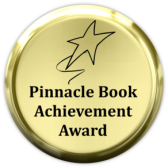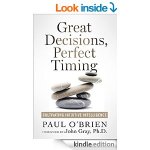Over the last month, I have been refining the concept for my second book on the topic of legacy. I have been puzzling on how to encourage the 50+ age group to get more serious about creating their legacy for future generations. And yes, I get it. It is probably pretty healthy that normal rational adults don’t dwell on their eventual demise. So, how can the topic of legacy be made more palatable?
One idea I had is to use the idea of a bucket list as a tool to help this process. Everyone likes the idea of adding new fun activities to their own personal bucket list. The issue I struggled with is that bucket list is all about ME….ME…ME. Legacy is about giving meaningful gifts to future generations. So how can I reconcile these two seemingly different concepts?
The approach I am considering for the book is to combine both together. First, start with the fun stuff. Have the reader identify all the fun, exciting, challenging things they ever wanted to do and get it onto a list. Ideally, this would be web-based or an Apple or Android smartphone “app”. I identified an existing bucket list “app” that would be perfect for this.
The second step is to get my audience to acknowledge they will probably have quite a long retirement. We are all living longer – much longer than adults did when we were kids growing up. So the thought was to convince each individual to use just a bit of their time in retirement to focus on helping those future generations. The psychological concept is generativity. Basically, go off and use some of your time to do all the fun, exciting, crazy things you’ve always wanted to. Be creative, be free! When one of the adventures can be checked off your list, come back and work on other elements of your bucket list. These are the ones under the LEGACY category. Most bucket list “apps” today give a large number of ideas of what to add to your personal bucket list. Well, in this case, a number of ideas could be suggested under the LEGACY category of the “app” of things to do to help future generations. The individual could pick-off one idea of their legacy items to next work on. And so on……
I always thought a bucket list was only a “ME” tool, but with a little creativity, we can also make it a “WE” tool for the future. The concept name for the book is My BucketList Legacy. What do you think? Is it worth writing? Your comments would be greatly appreciated.
45.497819
-122.669237





